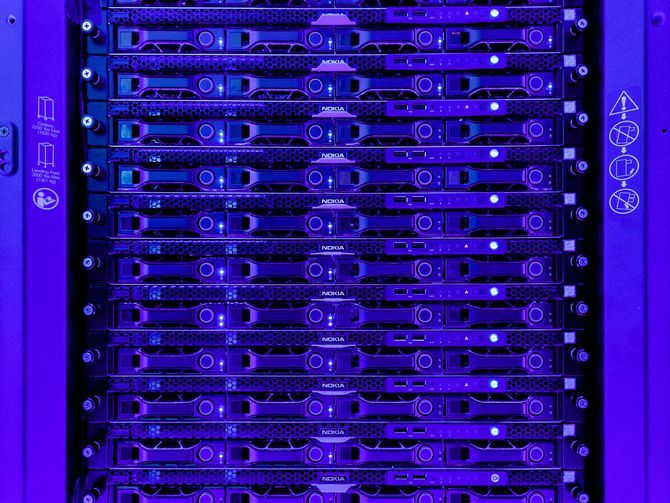Page 10620
Dec 14, 2016
Macaque monkeys have the anatomy for human speech, so why can’t they speak?
Posted by Sean Brazell in categories: computing, neuroscience

While they have a speech-ready vocal tract, primates can’t speak because they lack a speech-ready brain, contrary to widespread opinion that they are limited by anatomy, researchers at Princeton University and associates have reported Dec. 9 in the open-access journal Science Advances.
The researchers reached this conclusion by first recording X-ray videos showing the movements of the different parts of a macaque’s vocal anatomy — such as the tongue, lips and larynx. They then converted that data into a computer model that could predict and simulate a macaque’s vocal range.
Continue reading “Macaque monkeys have the anatomy for human speech, so why can’t they speak?” »
Dec 14, 2016
IBM’s Watson supercomputer discovers 5 new genes linked to ALS
Posted by Shane Hinshaw in categories: biotech/medical, neuroscience, robotics/AI, supercomputing
IBM Watson is known for its work in identifying cancer treatments and beating contestants on Jeopardy! But now the computing system has expertise in a new area of research: neuroscience.
Watson discovered five genes linked to ALS, sometimes called Lou Gehrig’s disease, IBM announced on Wednesday. The tech company worked with researchers at the Barrow Neurological Institute in Phoenix, Arizona. The discovery is Watson’s first in any type of neuroscience, and suggests that Watson could make discoveries in research of other neurological diseases.
SEE ALSO: This high-tech E.L.F. is guiding confused shoppers with the help of IBM’s Watson.
Dec 14, 2016
Inexpensive Diabetes Drug May Be New Weapon in War on Cancer
Posted by Shane Hinshaw in category: biotech/medical
Sometimes a drug intended for one purpose turns out to have other uses. Metformin, a treatment for type 2 diabetes, may prove effective in treating cancer.
Researchers are a step closer to figuring out how metformin may help prevent cancer.
Metformin is generally used to treat type 2 diabetes. The drug helps the body use insulin more effectively.
Continue reading “Inexpensive Diabetes Drug May Be New Weapon in War on Cancer” »
Dec 14, 2016
NASA scientist warns Earth is due for an ‘extinction-level event’
Posted by Sean Brazell in categories: asteroid/comet impacts, existential risks
In news certain to take the bounce out of your step, a NASA scientist says Earth is due for an “extinction-level” event that we basically would have no way of stopping.
Dr. Joseph Nuth of NASA’s Goddard Space Flight Center rang the alarm Monday in San Francisco, New York Magazine reports. The comet that spelled disaster for the dinosaurs hit 65 million years ago, and Nuth said the massive asteroids and comets that could wipe out civilization usually strike “50 to 60 million years apart,” making such an event overdue.
In 2014, scientists first spotted a large comet barreling toward Mars just 22 months before it came perilously close to hitting the planet. That wasn’t enough time to do anything, Nuth said, proof that “the biggest problem, basically, is there’s not a hell of a lot we can do about it at the moment.” To prevent a catastrophic event, Nuth suggests NASA create a rocket that can go in storage, ready to be used if a huge comet comes our way. “It could mitigate the possibility of a sneaky asteroid coming in from a place that’s hard to observe, like from the sun,” Nuth said. The way 2016 has gone so far, you might want to start scanning the sky. Catherine Garcia.
Continue reading “NASA scientist warns Earth is due for an ‘extinction-level event’” »
Dec 14, 2016
Ashes of the Singularity Cinematic Intro
Posted by Sean Brazell in category: singularity
Dec 14, 2016
Amazon Conducts First Commercial Drone Delivery
Posted by Klaus Baldauf in category: drones
Amazon said Wednesday it made its first customer delivery by drone, putting the online retailer in the lead to use drones as a new delivery method.
Dec 14, 2016
Artificial intelligence has a big year ahead of it
Posted by Shane Hinshaw in category: robotics/AI
In 2017, AI won’t just be for the nerdy companies. Machine learning can help with mortgage applications and bridge safety, too.
Dec 14, 2016
Trump to meet tech firms including Apple, Facebook and Google
Posted by Zoltan Istvan in categories: business, employment, mobile phones, policy, robotics/AI
New article on immigration and AI in The Guardian. https://www.theguardian.com/technology/2016/dec/14/donald-tr…automation #future
All of this could be under threat if we are to take some of the comments the Trump campaign made in the run-up to the election at face value. The outspoken candidate claimed that Mark Zuckerberg’s push for specialist H1B visas (the main visa used to hire foreign talent to tech companies) was a threat to jobs for American women and minorities. Meanwhile, Trump’s chief strategist Steve Bannon suggested that Asians have too much power in Silicon Valley.
About a dozen members of Silicon Valley’s elite – including Apple CEO Tim Cook, Alphabet CEO Larry Page, Microsoft CEO Satya Nadella and Facebook COO Sheryl Sandberg – will meet with Trump in New York. The meeting is likely to provide an opportunity for them to highlight their concerns and priorities with the incoming administration.
Continue reading “Trump to meet tech firms including Apple, Facebook and Google” »
Dec 14, 2016
Can Cellular Senescence be Reversed in the Near Future, and is Reversal Desirable?
Posted by Steve Hill in categories: biotech/medical, life extension
Senescent cell removal holds great potential but are all research approaches equal?
Some scientific commentary on senescent cell clearing (Senolytics) and the different approaches the research community is engaged in.
“Researchers are taking two broad approaches to cellular senescence at the present time. The first is to build therapies that can selectively destroy senescent cells, following the SENS rejuvenation model of periodic removal of damage. If the number of senescent cells is managed so as to keep that count low, then they will not cause further harm. This has the advantage of being straightforward and requiring little further research to put into practice. A range of demonstrated treatments and potential treatments already exist — gene therapies, immunotherapies, senolytic drugs, and so forth — and companies such as Oisin Biotechnologies and UNITY Biotechnology are bringing some of these technologies to the clinic.”

















